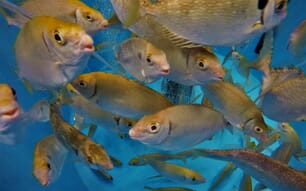The proposal is designed to enable the Commission, Member States and maritime stakeholders to keep up the good work in favour of a sustainable use of oceans, seas and coasts. The Integrated Maritime Policy advocates an integrated approach to the management and governance of the oceans, seas and coasts, and fosters interaction between all sea-related policies in the EU.
The purpose of the proposed funding, € 50 million, is to continue the work undertaken since 2007 namely to remove policy barriers, allow savings on both the EU and national budgets and unleash synergies by bridging between all policies with an impact on the sea, such as transport, fisheries, customs and marine environment protection.
Commissioner for Maritime Affairs and Fisheries Maria Damanaki said: "The Integrated Maritime Policy has changed the way we look at our seas and oceans. This budding policy has already started to deliver in a considerable number of ways; but it needs uninterrupted financial underpinning to be effective and operational during the remaining years of the current Financial Perspective (2011 to 2013)."
Over the past two years, a number of projects and initiatives have set out the foundations for the Integrated Maritime Policy. For instance, three sea basins were scrutinised in an effort to harvest possible synergies across different sectors: the Arctic, the Mediterranean and the Baltic Sea – the latter in the context of the Baltic Sea Strategy.
The Commission has also launched Maritime Knowledge 2020, a broad initiative to gain a better understanding of the status of our seas. Integration work also advanced on maritime surveillance, where all the available systems are being grouped into a seamless whole so as to help national authorities in preventing illegal activities, safeguarding the marine environment, and making maritime transport efficient, safe and secure.
To organise marine space, guidelines have been developed to promote the sustainable use of the space, to foster cross-border investments and to help the EU obtain a good environmental status of our waters by 2020.
All these initiatives were financed through preparatory actions and pilot projects which, by their very nature, had a time limit of two or three consecutive years.
The proposal for a Regulation adopted today foresees a programme that will provide a stable framework to keep supporting them in a seamless fashion. It will add value to the measures already taken by Member States at national or sub national level. The Programme will also create synergies between other EU financial instruments, thus leading to a more coherent use of the funds affecting the seas and coasts.
The programme identifies six main areas of work.
Promoting integrated maritime governance at European, national and regional level so as to ensure that decision making is not centred around one single policy, but takes a broader view of all the actions that impact on the seas;
Pinpointing the specific challenges and needs of European sea basins in relation to the various individual sectoral policies;
Developing maritime spatial planning and integrated coastal zone management to provide a stable planning framework at sea and ensure that its development is sustainable and economically viable.
Developing a proper marine knowledge infrastructure leading to reliable and high-quality marine data for both public authorities and businesses, reducing the operational costs for marine data users and fostering competition and innovation.
Developing a common Information Sharing Environment which brings together all the sector-specific surveillance and monitoring systems to give a comprehensive "marine awareness" picture, so that national authorities are better equipped to monitor activities and react to unlawful ones or to threats at sea.
Promoting sustainable economic growth, innovation and employment in maritime sectors and coastal regions, thereby meeting the objectives set out in the Europe 2020 strategy for smart, sustainable and inclusive growth.
Next steps
The Regulation will now go to the Council and the European Parliament to be discussed under the new co-decision procedure established by the Lisbon Treaty.
For more information, see http://ec.europa.eu/maritimeaffairs/
Renewed support for the Integrated Maritime Policy
EU - Today the European Commission put forward its proposal for continued financial support to the EU's Integrated Maritime Policy, established in 2007, for the period between 2011 and 2013.

